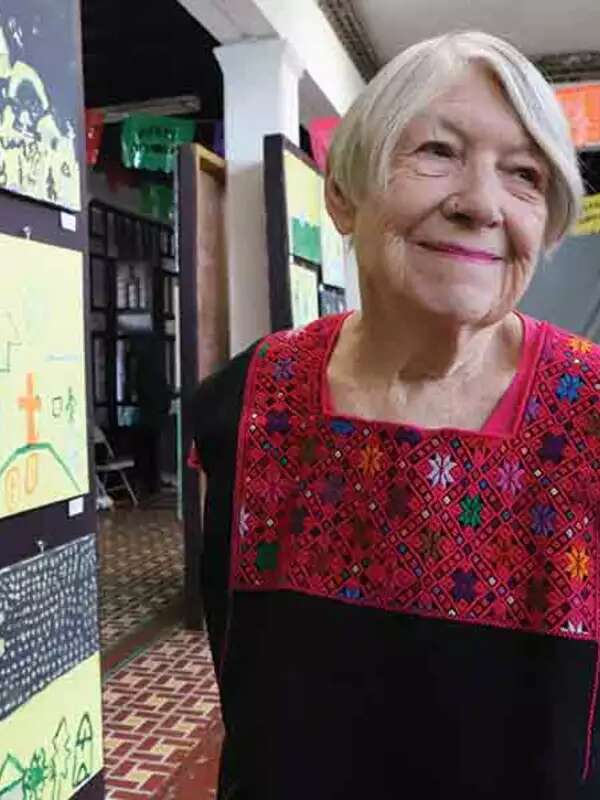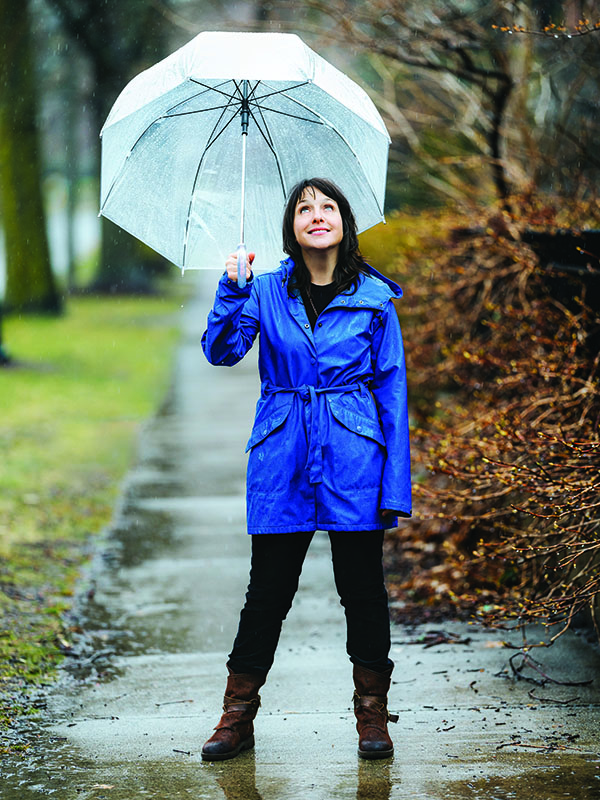

Sarah B. Miller ’98 has a unique skill: She doesn’t just perform vasectomies, she makes them enjoyable for her patients.
“I’ve been collecting dad jokes as a vasectomy provider,” says Miller, a Boston-based physician. “I had a patient say, ‘Thanks, that was fun,’ and I was like, ‘Oh no, now I have to hold myself to a new standard.’”
Miller is the founder and clinician at Northeast Vasectomy and Family Planning, a clinic in Brookline, Massachusetts, dedicated to no-scalpel vasectomies, which is an outpatient, pain-free version of the procedure that blocks sperm supply from semen in people with penises.
In a “traditional” procedure, physicians — mostly urologists, rather than primary care or family medicine doctors — use a scalpel to make a couple small holes in the scrotum to access the vas deferens, which transports sperm from the testicles to the body to mix with the semen, which exits through the urethra. The no-scalpel version — which Miller learned during her medical training by apprenticing with experts in multiple far-flung locations such as the Philippines and Quebec City in Canada — uses a holder and a spreader for access instead, minimizing infection risk and healing time.
She became passionate about the method during a residency in urban family planning at Beth Israel in New York City, which she undertook as a fledgling family medicine doctor.
“Most people were doctors for obstetrics and gynecology at the point I was going through this training,” she says, so “vasectomies and services and options for people with testes were not something that we were commonly trained for or that we were set up to be able to provide. I can’t be a family doctor who takes care of everyone regardless of gender, and a family planning specialist, and not be able to provide this service that exists for people with testes,” she says.
As reproductive health becomes an increasingly polarized and contentious topic in the United States, Miller is focused on expanding access to this less discussed side of family planning. But her approach is becoming increasingly mainstream: Since the U.S. Supreme Court overturned the national right to abortion in 2022, more men are seeking vasectomies as a family planning method.
It’s a trend Miller supports. “The reality is that in places where vasectomy is easy to access, affordable, and is done a lot, it becomes more and more popular,” she says. According to a 2020 data brief by the Centers for Disease Control and Prevention, 5.6% of contraceptive use in 2017-2019 was “male sterilization.” Sterilization in women was three times more common, at 18.1%, despite being a higher-risk procedure that costs more money. “That ratio, all other things being considered, should probably be reversed,” Miller says.
Miller began her medical career focused on family medicine more generally. It’s an approach to primary care that takes the whole person, including children, into account. Picture the neighborhood doctor, who knew everything about everyone, in an old-timey film. But “always interested in filling in holes in needs that weren’t being met in medicine,” she quickly gravitated toward family planning more specifically.“
I’ve been collecting dad jokes as a vasectomy provider. I had a patient say, ‘Thanks, that was fun,’ and I was like, ‘Oh no, now I have to hold myself to a new standard.’
Ninety-eight percent of people need or want to use birth control for any number of reasons,” she says, making it a part of “basic healthcare” often overlooked in primary care clinics. After her Beth Israel residency, she completed a fellowship, also focused on family planning, at Albert Einstein College of Medicine and Montefiore Medical Center. “Then I spent the next 10 years of my life working to integrate vasectomy services as well as abortion services and miscarriage management into the primary care setting,” she says.
Miller worked in community health centers and Planned Parenthood clinics, mostly in New York, where she lived after her Barnard days until five years ago, when she moved back home to Massachusetts and launched her own clinic.
She now works at Northeast Vasectomy about half the time and the other half at a nearby urgent care clinic and in New York as the director of vasectomy services for Planned Parenthood of Greater New York. She also did a regular cadence of work at an abortion clinic in Alabama until the dissolution of federal abortion protections made the procedure virtually inaccessible there. “There’s a chunk of my heart in Alabama,” Miller says.
None of this journey seemed foregone during Miller’s time at Barnard, where she majored in English with a film concentration. “I thought I was going to be a filmmaker and a potter,” she says. She spent the first four years after graduation living a standard artsy life, sharing a loft in Bed-Stuy with fellow alumnae. Then suddenly, whether it was a fortuitous glance at an ad for post-baccalaureate classes on the subway or an urge to give back after her experience traveling internationally, she decided she was changing course.
“I just made a decision, then I woke up 11 years later and I was a doctor” is how Miller describes the pivot. However she got there, her focus on increasing equity in family planning comes at a vital moment in U.S. history.
“On the one hand, I really want people with testicles to be able to access birth control themselves,” she says. “On the other hand, I want to remove some of the contraceptive burden and pregnancy burden that has been placed on people with uteruses.”



